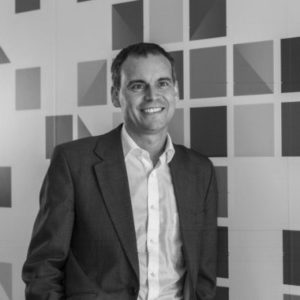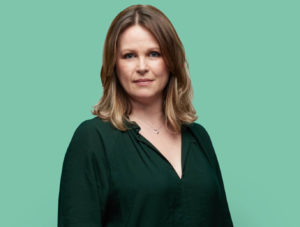1. What brought you to your current role at Salesforce?
2. Is there a particular kind of organisation that tends to impact the most from Salesforce?
3. What would your advice be to companies facing legacy challenges when it comes to implementing Salesforce?
4. How is technology, such as AI & robotics, impacting Salesforce?
5. You have an extremely broad range of experience across a number of departments. How does that impact you as a sales person?
6. What are the three most important characteristics in any great salesperson?
7. How would you describe the relationship between sales and marketing and which of those should drive that relationship?
8. How important are events within the Salesforce sales and marketing strategy?
9. Are there any in particular sales methodologies that you subscribe to?
10. What’s your approach to measuring success? Do you dig around in huge quantities of data or do you tend to try and focus on just a small number of headline metrics?
11. How important is it for salespeople to really buy into the culture and the vision of the organisation that they’re representing?
12. How important is consultative selling nowadays? Does it depend on what you’re selling?
Question 1 – What brought you to your current role at Salesforce?
Of course, Max Roberts, I’m Area Vice-President for Enterprise Sales here at Salesforce, UK. In terms of my background, I’ve spent 20 plus years now working in the technology sector always in IT and technology, and I’ve done lots of different roles over those periods from consulting right through to delivery and sales and lots of exciting roles. I think you asked an interesting question about why I came to Salesforce for me there were some really clear reasons for that nearly five years ago now, I wanted to put myself at the front of the technology wave. I also wanted to work for a high-growth company there’s lots of fun and opportunity in those types of organisations. Then underneath that really when I was looking at which organisation was going to be most attractive to me there were three pillars, the people, the product and the culture of the organisation. It’s great to be working with fabulous people, we have an incredibly strong and innovative product stack and the culture here is also incredibly strong and it’s been a big part of my work-life balance here.
Question 2 – Is there a particular kind of organisation that tends to impact the most from Salesforce?
So I’d like to just step back a little bit if I may. So Salesforce is now 19 years old and it was founded on the principles of having a new technology stack and a new business model and actually, a new philanthropic model was really key to us at the time. That business model was all about providing software as a service platform, providing CRM as a service to our customers and to support that we needed a very different technology model and that technology model and business model has proved really powerful for us. So it means that we can sell to the very smallest customer, so a shop or a very small organisation that’s sitting down there just below us in the street or the biggest bank used the same platform and the same technology. So we can service the whole breadth of businesses in terms of who gets the most benefit, I don’t think the answer to that is whether they’re a large organisation or a small organisation it’s about whether they’ve got the ability to deploy and consume that and the desire to move their business forward using the technology.
Question 3 – What would your advice be to companies facing legacy challenges when it comes to implementing Salesforce?
So I think sponsorship from the top of the organisation is always key and continued sponsorship through the processes always means that the programs have far greater chances of success. I think one of our key strategies over the last 12-18 months has been focused around integration actually, so if you look at what we’ve done over the past year we acquired MuleSoft, one of the biggest cloud integration companies. That was all about solving the problem you’ve just spoken about there. We know that our customers have a myriad of systems which sometimes are very difficult to turn off, we have lots of silos of data all over an organisation and being able to subsume that and get that data into a platform where you can take that single view of the customer, start to look, use analytics and use artificial intelligence across the top of that to really get an insight into what your customer is doing and what they want to do and have that personalised journey has been absolutely key for us. So making sure you’ve got the right integration and you’ve got the right data coming in is absolutely key as well.
Question 4 – How is technology, such as AI & robotics, impacting Salesforce?
Well, as we sit today we’re right in the middle of the fourth Industrial Revolution. In those technologies we’ve got IOT data, we’ve got a plethora of devices creating lots and lots of data out there, we’ve got consumers and customers now expecting to interact with companies in a different way and being able to subsume that data into a platform and make educated decisions to really personalise your service around that customer is absolutely key. So behind every one of those bits of data somewhere is a customer and being able to make sense of that has been absolutely key for us. If we look at, how it’s affected me as a sales leader in the business, I now forecast using artificial intelligence, so I’ll make my own forecast but I also have an artificial intelligence score that’s built up of all of the years of data that we’ve got about that customer, the performance of that type of opportunity and we’ll get a lead score so I can I can have a very different and very objective balanced look at the business as well as my own view so, we see the technologies coming into the Salesforce platform and evolving all of the time.
Question 5 – You have an extremely broad range of experience across a number of departments. How does that impact you as a sales person?
I’ve had a number of roles that I think contribute to what I do today. So the delivery is a key part of it when you sit down with a customer and you can understand the cycles that their programs and projects are going to go through. You’ve seen perhaps some of the pitfalls and also the huge benefits and that’s a very valuable conversation point. I also spent some time working in the Alliance channels part of a technology business, which enables me to really think about how we build very strong relationships in the Salesforce ecosystem and how we focus them on the customer success and make sure that we get best results for the customers and those are big parts of my career which now I utilise every day.
Question 6 – What are the three most important characteristics in any great salesperson?
So when anybody is joining the organisation I often get asked a similar question and there are three things I think that makes people successful here right out of the blocks, which is embracing the technology. We have a fantastic technology stack here and understanding and using that technology and being able to demonstrate how you use that technology, that doesn’t matter whether you’re in sales or any other business function here. Being able to talk about that is is absolutely key. Embracing the culture, we have a fabulous culture here which I touched on earlier, but getting stuck into that can do innovative attitude is absolutely key. Then I talked about making an impact, so get out, talk to the customers, spend time talking to customers about how they can use the technology to innovate and drive their business forward and you’ll get some wonderful results.
Question 7 – How would you describe the relationship between sales and marketing and which of those should drive that relationship?
I see them as being, 100% tightly linked. One cannot exist without the other, but if you align those resources together you can you get some great results. I think, if they’re not in sync then you really can start to get problems. So making sure that we have very clear measurable outcomes and a very clear plan for the year, that we’re all focused on is absolutely key. It’s a huge part of what we do and how we go to market here at Salesforce, having that ability to plan the campaigns, plan those big events that we have, the World Tour here in London and Dreamforce over in San Francisco and make sure that we have the right customers there and the right events around that, it’s been absolutely key for us.
Question 8 – How important are events within the Salesforce sales and marketing strategy?
So in terms of events, I think from our perspective we had our Dreamforce event in San Francisco in September and we had over 170,000 customers and partners at that event, it’s incredible actually. Pulling together the ecosystem and allowing the customers, the partners but particularly customers talking to other customers, that’s a huge part of what we do. So just sort of 3,000 of the sessions that we ran at that event were customers talking about how they’ve implemented and how they run Salesforce. So pulling people together in that kind of environment has tremendous value and we saw the same thing just behind me in Docklands in May as well at a World Tour.
Question 9 – Are there any in particular sales methodologies that you subscribe to?
Yeah, I think as you would expect, we have a fairly focused sort of rigour and cadence around the business here at Salesforce. So over the years, I’ve used probably five or six of those different methodologies and I think a big part of what we do here is how we get together once a year, the management team get together for kickoff and then we review at the half year. What we call our V2MOM, which is on the face of it a very simple document but it’s our vision, our values, our methods and our measures and we set out at the beginning of every year with a very clear set of visions for the year, six, seven maybe a few more and we critique that as a team and then that plan, that V2MOM is then cascaded down and everybody in the organisation has their plan for their bit of the business, no matter how large or small and they’re all done and written within six weeks at the beginning of the fiscal year. So it’s a very agile way, a very simple way of making sure that we test what the priorities are for the business over the next year and we can just focus and align everybody in the business behind those key vision statements.
Question 10 – What’s your approach to measuring success? Do you dig around in huge quantities of data or do you tend to try and focus on just a small number of headline metrics?
I think the latter is absolutely the way we focus here, so as a business we focus on certain wheels and make sure that we keep those turning in the business week in week out. One of the key ones is always going to be around pipeline generation and making sure that they do that. Now on the face of it, that’s a very simple KPI how much how much pipeline have you created in a week but actually what we have is a very simple but very clear analytics dashboard which gives me the key bits of information that I need to know. So one thing is, of course, the rate of producing pipeline but then also you need to look very carefully at the how that pipeline is progressing along the stages, but also you need to look at the makeup of that pipeline in which products are in there but also how was that pipeline created, because the way and how that the pipeline was created can often have a big impact on the conversion rate so you need to make sure that you have a balance. So there’s a number of key indicators in there that I always, and I look at that weekly so, at the beginning of the week we set the priorities for the week and we’ll have a look at how we’re just trending on those things so I like to make sure that everybody keeps the machines turning within the business every single week.
Question 11 – How important is it for salespeople to really buy into the culture and the vision of the organisation that they’re representing?
Very, Salesforce is in the business of doing good if you like. A huge part of my four or five years in fact probably the things I’m most proud of since I’ve come here, have come out of the work we do with our foundation. So when the company was founded we had a philanthropic model. So we call it 111, one per cent of our time, one per cent of our profit and one per cent of our equity or our product goes into not for profits. That’s been huge for us over the last few years so each and every employee in the UK get seven days to volunteer at Salesforce’s expense and we have a huge infrastructure to help people do things. You can do that whatever you want, you can do it in your local community but we also do a huge amount of activities around our hubs, these buildings here, usually you’ll see a school or something passing through during the course of a day. So building a culture that also gives back and has a slightly different aspect and encouraging everybody to be part of that has been huge for me over the last four or five years.
Question 12 – How important is consultative selling nowadays? Does it depend on what you’re selling?
Critical. I think those salespeople or those people that engage with customers and really take the time to understand the businesses, the challenges, the processes, all of the issues that business has, they’re going to be the ones who come up with the solution that’s most appropriate and take that customer forward. One of our core values, our number one core value, is about trust and building trust with the customer. Because we’re a SAS model we know that we’re entrusted with our customers most of our sensitive data and looking after that is absolutely key, so the relationships that all of our people form be that sales or non-sales with a customer is absolutely critical and taking that time to understand where the customers going is so important.




